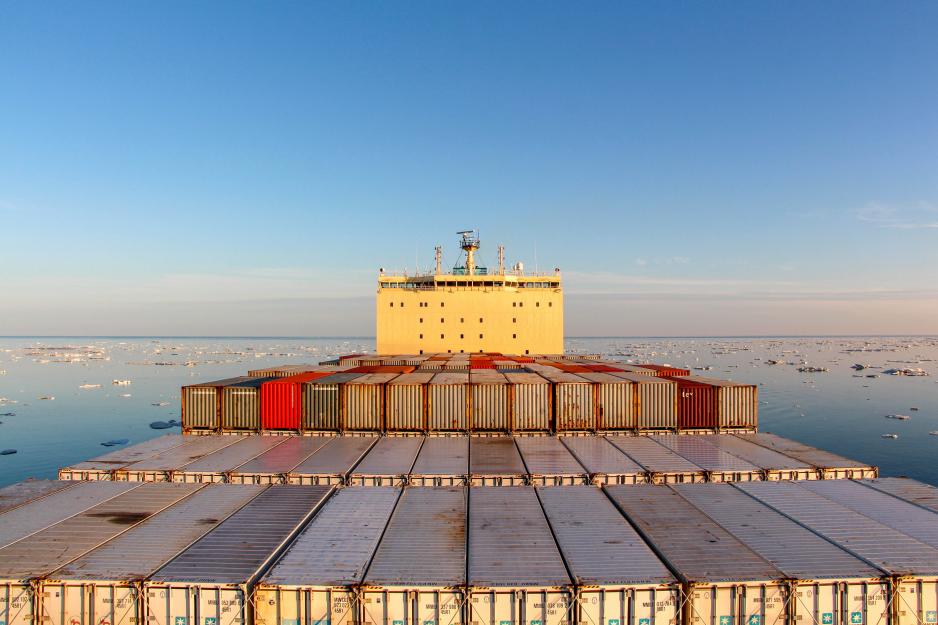Russia won’t extend the Northern Sea Route to include the Barents Sea
An expansion would have made an ambitious shipping target easier to meet, but complicated Russia's regulation of the route under international law.

Russia’s Arctic Commission last week declined a proposal to extend the range of the Northern Sea Route to the Barents Sea.
The shipping route as currently designated covers the waters between archipelago Novaya Zemlya and the Bering Strait.
The development of the route has been top priority for Russia ever since President Vladimir Putin included it in his so-called May Decrees in 2018. Putin wants annual shipments of goods along the Europe-Asia link to reach 80 million tons by the year 2024.
In 2017, a total of 10,7 million tons were transported on the route. In 2018, the volume increased to 20.18 million tons and in 2019 to 31.5 million. Despite plans for a number of major new industrial projects across the region, the road towards the 80-million-ton target is still very long and difficult.
Several government representatives recently proposed including the seaports of Murmansk and Arkhangelsk in the Northern Sea Route, as a way to bring that target into easy reach.
However, the participants in last week’s Arctic Commission meeting decided otherwise.
According to newspaper RBC, the Arctic Commission will not extend the territory of the sea route to the west, nor to the east. The reason is that an extension will have to be followed by legal changes in the status of the route, the newspaper reports.
Currently, Russia claims the right under international law to apply special regulations on shipping in the area because of the complex situation with sea ice. (Canada advances similar claims for the Northwest Passage.) But if those regulations applied also in the Barents Sea, conflicting situations over international maritime laws could appear, skeptics say.
It is especially Rosatom, the state nuclear power company with special responsibilities for NSR development, that oppose the extension of the sea route, RBC reports with reference to several ministry sources.
“Within reach”
Despite the seemingly impossible task, Rosatom still argues that 80 million tons of shipments can be reached by 2024. In a meeting with President Putin on June 17, Rosatom leader Aleksey Likhachev underlined that shipping on the sea route is progressing ahead of schedule.
Rosatom and the other state bodies engaged in the development of Arctic shipping are under major pressure to meet targets.
“We are moving towards this goal, advancing ahead of the annual target volumes,” Likhachev said and added that goods volumes in 2019 was 5.5 million tons higher than originally planned.
According to the company leader, it is first of all new oil and gas fields that will help boost shipments,
“It is a very ambitious number — 80 million […] But we are very actively working with mineral extracting companies Rosneft, Novatek, Gazprom, and see how our partners invest efforts and finances in these northern fields,” Likhachev told the president.
The Rosatom leader has previously made clear that he believes shipments on the NSR can reach 92.6 million tons by 2024. A key part of that volume is coal, Likhachev explained in a conference on the Arctic in 2019.